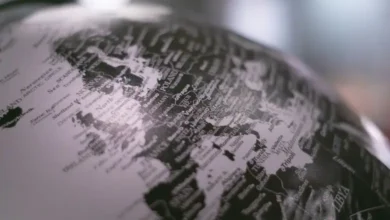5 Problems that Come with Biohazard Waste

Biohazard waste is a dangerous thing to manage. It requires expertise, especially since improper disposal can result in many complications ranging from the spread of disease to various legal and regulatory concerns that can shut down any business. If you’re exposed to or work with biohazard waste regularly, you’ll know how important it is to deal with it efficiently and properly. Biohazard waste contains a range of various pathogens and other infectious materials that spread the worst kind of diseases and, if left unchecked, will wreak havoc on the environment. Here are five of the most common complications that come with biohazard waste.
Impact on the Environment
Biohazard waste has a big impact on the environment. The path some of the chemicals present in the waste take can be difficult to track and can destroy entire ecosystems in the area. If bacteria from the waste get into the water, they can poison and pollute it, so it’s no longer suitable for drinking. If the bacteria can generate nitrates, eutrophication can occur, eventually leading to a stream that is unable to sustain life.
If soil is contaminated by these chemicals or bacteria, crops may not grow, destroying local economies and businesses. Air pollution is another common complication, which generally occurs when this waste is burnt. Pathogens in the air can infiltrate the lungs of anyone living in a large radius around the burning site. You should manage the waste you handle or generate before it can have an effect of this magnitude.
Spread of Diseases

Because of this, handling waste has become a major concern for many companies. Luckily, some businesses now handle biohazard waste management for you, making sure they’re disposed of in appropriate ways.
Legal Complications
Because of the disruptive impact this kind of waste has on all kinds of life in the nearby area, there is a lot of legislation and even more organizations that track and penalize people for disposing of this waste incorrectly.
Organizations like the Environmental Protection Agency and Occupational Safety and Health Administration keep tabs on the status of waste disposal undertaken by companies. If they find anything wrong with how you’re handling things, you could be severely fined or, worse, even shut down temporarily.
Occupational Risks
The people who handle and transport biohazard waste are at risk of complications resulting from their exposure, mainly diseases, and infections. Needles that end up in waste can pierce the skin and even result in deadly diseases that are transported through these needles. If you encounter this problem, you could be open to a lawsuit. To prevent this from happening, consider hiring a company that has a team of professionals properly suited to the task.
Lack of the Required Facilities
If you’ve had to deal with biohazard waste, you’ve likely run into this problem. There are different waste classifications, and they all need to be disposed of separately and in different ways. For example, needles are “sharps” and must go in a sharps container. Pathological waste, like bodily fluids and organs, should be buried in thick boxes. You likely won’t have access to these containers or may not have the space to bury them. In that case, the easiest solution will be to outsource your problem.
Conclusion
As noted in this article, the problem of biohazard waste is an important one because of the kinds of drawbacks it can have on any business or community. Whether it’s the spread of diseases that are difficult to control or the financial and legal ramifications that come with improper handling, it’s clear that you should address the problem proactively before it goes out of your control. By understanding the challenges associated with biohazard waste, implementing appropriate solutions, and fostering a culture of safety and responsibility, organizations can overcome these obstacles and promote a safer and healthier environment for all.






